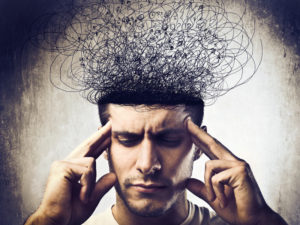Improve Attention in Children and Adults with ADHD with Mindfulness
By John M. de Castro, Ph.D.
“Unlike many tools for ADHD, mindfulness develops the individual’s inner skills. It improves your ability to control your attention by helping to strengthen your ability to self-observe, to train attention, and to develop different relationships to experiences that are stressful. In other words, it teaches you to pay attention to paying attention, and can also make people more aware of their emotional state, so they won’t react impulsively. That’s often a real problem for people with ADHD.” – Carl Sherman
Attention Deficit Hyperactivity Disorder (ADHD) is most commonly found in children, but for about half it persists into adulthood. It’s estimated that about 5% of the adult population has ADHD. Hence, this is a very large problem that can produce inattention, impulsivity, hyperactivity, and emotional issues, and reduce quality of life. The most common treatment is drugs, like methylphenidate, Ritalin, which helps reducing symptoms in about 30% of the people with ADHD. Unfortunately, the effectiveness of the drugs appears to be markedly reduced after the first year. In addition, the drugs often have troublesome side effects, can be addictive, and can readily be abused. So, drugs, at present, do not appear to be a good solution, only affecting some, only for a short time, and with unwanted side effects.
There are indications that mindfulness training may be an effective treatment for ADHD. It makes sense that it should be, as the skills and abilities strengthened by mindfulness training are identical to those that are defective in ADHD, attention, impulse control, executive function, emotion control, and mood improvement. In addition, unlike drugs, it is a relatively safe intervention that has minimal troublesome side effects. Since mindfulness is so promising as a treatment, it is important to step back and summarize what has been learned in the scientific research of the effectiveness of mindfulness training for ADHD.
In today’s Research News article “The Effectiveness of Mindfulness-Based Intervention in Attention on Individuals with ADHD: A Systematic Review.” (See summary below or view the full text of the study at: https://www.ncbi.nlm.nih.gov/pmc/articles/PMC6092011/ ), Lee and colleagues review and summarize the published research studies on the effectiveness of mindfulness training for Attention Deficit Hyperactivity Disorder (ADHD) in children and adults. They found 9 articles, 5 with adults, 1 with adults and adolescents, 2 with adolescents, and 1 with children.
They report that the published studies on adults with ADHD found that mindfulness training produced significant improvements in attention. With both adolescents and children both teachers and parents reported that after mindfulness training there were significant improvements in attention. Unfortunately, many of these studies used weak experimental designs. Hence, there is a need to perform large scale randomized controlled studies with active controls before firm conclusions can be reached.
Mindfulness training, however, focuses on attention, with training to maintain attention in the present moment on a target, such as the breath or feelings from the body. It has been repeatedly shown to improve attention in a wide range of healthy and ill individuals of varying ages. So, it would seem reasonable to predict that mindfulness training would also improve attention in people with ADHD.
So, improve attention in children and adults with ADHD with mindfulness training.
“ADHD is characterized by difficulties with executive function, not just attention, and mindfulness is an avenue to developing interrelated cognitive skills, many related to executive function, not just attention.” – Mark Bertin
CMCS – Center for Mindfulness and Contemplative Studies
This and other Contemplative Studies posts are also available on Google+ https://plus.google.com/106784388191201299496/posts and on Twitter @MindfulResearch
Study Summary
Lee, C., Ma, M. T., Ho, H. Y., Tsang, K. K., Zheng, Y. Y., & Wu, Z. Y. (2017). The Effectiveness of Mindfulness-Based Intervention in Attention on Individuals with ADHD: A Systematic Review. Hong Kong journal of occupational therapy : HKJOT, 30(1), 33-41.
Abstract
Background/Objective
Mindfulness-based intervention has received more clinical interest and empirical support for individuals with ADHD especially to improve attention. However, no systematic review has been done to analyze and compare the effectiveness of mindfulness-based intervention on individuals with ADHD in different age groups. This review examined its effectiveness for individuals (children, adolescents and adults) with ADHD to improve attention.
Methods
In 7 databases, totally of 152 studies were identified; 9 met the inclusion and exclusion criteria and were reviewed. Five of the studies recruited adults as the participants, two recruited adolescents as the participants, one recruited both adults and adolescents as the participants and one recruited children as the participants.
Results
It was found that mindfulness-based intervention was comparatively more popularly used in adults with ADHD to improve attention, and the improvement was significant.
Conclusion
It is still unclear whether mindfulness-based intervention is effective for children and adolescence with ADHD due to limited studies available and the limitations of the study design in the reviewed studies. Therefore, more research in the future is required to answer the question.
https://www.ncbi.nlm.nih.gov/pmc/articles/PMC6092011/









